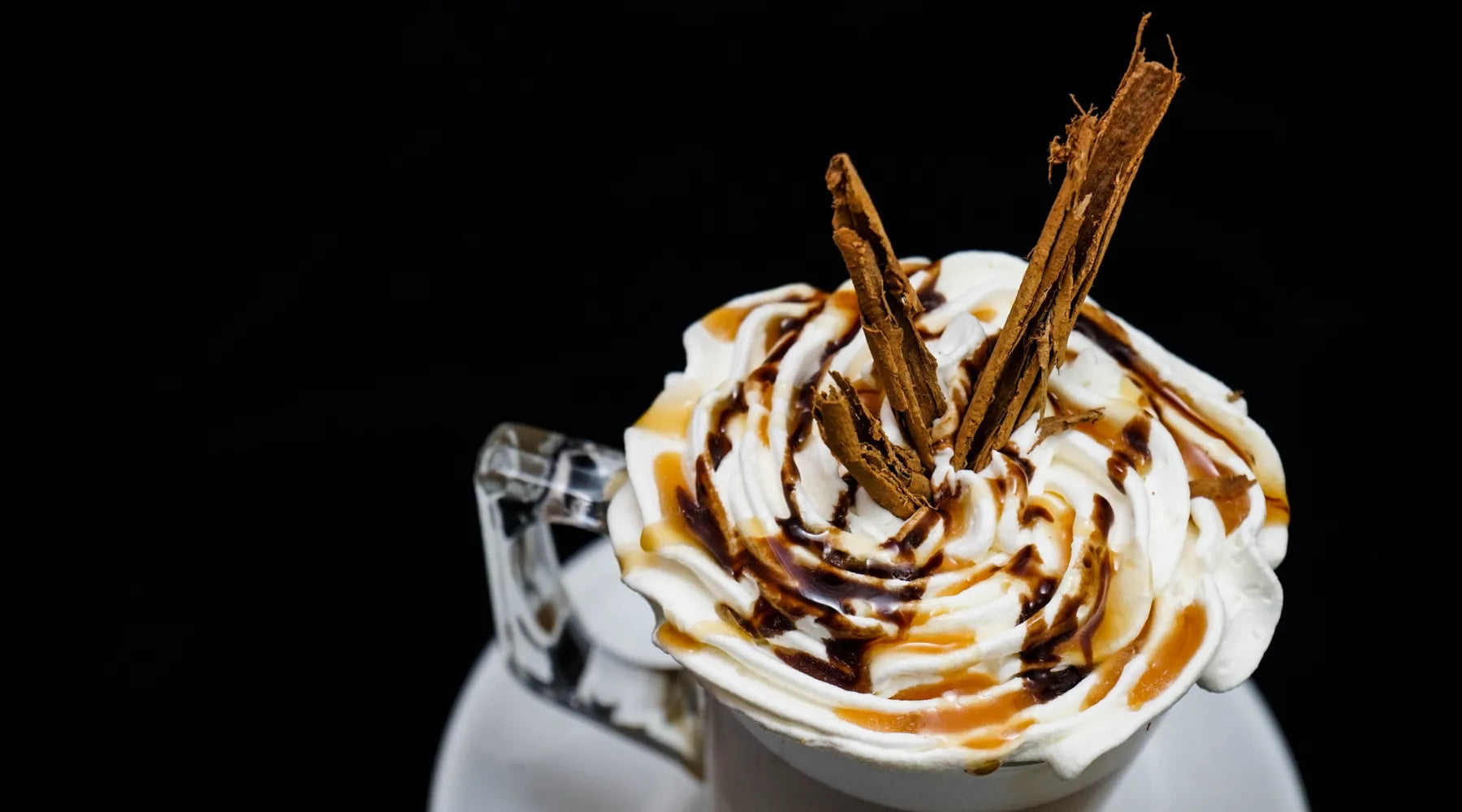At first glance, eggs seem indispensable when it comes to baking. They serve as a kind of "glue" that holds cakes, muffins, and pastries together. But there are many (good) reasons not to eat eggs: As a vegan or someone with allergies, the use of egg substitutes is very high on the priority list, because otherwise many recipes are simply out of the question. A very practical reason can also be that you don't have any eggs at home and you would still like to bake something where they appear in the recipe.
Whatever your reason for looking for an egg substitute:
You should first consider the purpose of the egg in the recipe. Should it give stability? Should it serve as a binder for the other ingredients? Or maybe it supplies moisture and fat? How should the result be in terms of texture? Soft? Crispy? And also important: The egg substitute should support the other ingredients and not overpower them in terms of taste.
We at Theyo have already put many egg substitutes through their paces and, above all, have come to the conclusion that an egg substitute is always a substitute and will never be a replica of a "real" egg. Once you have accepted this truth, you can choose more suitable recipes from our point of view. So ideally recipes that do without eggs from the start or work directly with egg substitutes. Of course, recipes that get by with just a few eggs are more suitable than recipes with many.
With this in mind, we tested eight different egg alternatives in our Theyo test kitchen. And while all have worked, in our view, some are more appropriate than others.
Egg substitute: How we tested
Where possible and sensible, we've tried to use the same recipes to compare baked results. However, since one or the other egg substitute is not suitable for certain recipes, we had to resort to various vegan versions of recipes that usually contain eggs. We focused on banana bread , chocolate cake and cookies . After this series of tests, we were able to record the following results for you:
Can you just leave out an egg?
Some recipes suggest that you can simply omit the eggs (often just 1 egg) to "veganize" it. From our experience and research, however, this is (almost) never a good idea. Instead, you should rather see what kind of egg substitute goes best with the recipe. As a rule of thumb, you can remember this: You should add about 50-60ml of liquid to the recipe for each egg. The following egg alternatives are available here…
What can I use instead of egg?
The answer: There are many different alternatives! Which?
Here you go:
Aquafaba
Rating: ⭐
Egg substitute: 2 tablespoons aquafaba = 1 egg white, 3 tablespoons aquafaba = 1 large egg
You can't avoid aquafaba if you're dealing with egg substitutes. It is the liquid that is produced when beans are cooked or – more simply – that is contained in the jar or can of beans. The liquid from chickpeas is used most often here. Since aquafaba mimics the properties of egg well, it is considered a very popular egg substitute: the composition of carbohydrates, proteins and soluble vegetable solids means that aquafaba has a lot in common with egg properties. It can emulsify, bind, foam and thicken. Especially exciting if you want to whip something like egg white, eg with meringues.
Aquafaba is also useful for other fluffy pastries such as cheesecake. Another great thing about aquafaba is that it has no taste of its own. Nevertheless, we at Theyo are not completely convinced: on the one hand, because in this context you always have to think directly about using the chickpeas and beans. And on the other hand, because our experiments with aquafaba were not really convincing. The results were rather chewy and not fluffy. Maybe we just haven't found the right recipe for this yet.
(Crushed) linseed
Rating: ⭐-⭐⭐
Egg substitute: 1 tablespoon ground flaxseed and 3 tablespoons water = 1 large egg (add 1/2 teaspoon cornstarch if necessary – see explanation below)
A slightly less well-known egg substitute: the "flaxseed egg". To do this, mix the flaxseed with water – ideally with a mixer or blender – and let the mixture thicken for about 5 minutes. Since, in our opinion, the flaxseed egg is only suitable for firmer doughs such as biscuits or dense muffins, we only recommend it to a limited extent. You should also make sure that you prefer to use a smaller amount of flaxseed egg. Because the taste of the mixture was also a bit too intrusive for us. Would you like to bake particularly crispy biscuits and would you like to use the linseed substitute for this? Then you can add 1/2 teaspoon of cornstarch to the mixture for each egg. If you - like us - find the flaxseed egg a bit too "dry", then you can add 1 1/2 teaspoons per egg a feet of your choice.
By the way: During testing, we found that with the same approach and ratio, oatmeal can be used instead of flaxseed. From our point of view the more attractive solution, because we would always prefer the taste of oats to that of flaxseed. But of course that is a matter of taste.
Chia seeds
Rating: ⭐⭐
Egg Substitute: 1 tablespoon chia seeds (whole or ground) and 3 tablespoons water = 1 large egg
As with flaxseeds, chia seeds need to be thickened in water before you can use them. Chia seeds come with a more neutral flavor than flaxseeds and have a pleasant, delicate texture. During our research, however, we were not able to find out for sure whether chia seeds are considered healthy or less recommended. We therefore find: If you like them in general and have them there, they are a useful egg substitute. If not, we have even better ideas to offer.
applesauce
Rating: ⭐⭐
Egg substitute: 60g (unsweetened) applesauce = 1 large egg
Applesauce is no longer a secret among egg substitute fans. As a stand-alone it generally makes doughs moister and less crispy. Unfortunately, we hadn't considered when testing that the applesauce would add some sweetness. This made our chocolate banana bread a little too sweet, but the slight hint of apple was welcome. Incidentally, some food bloggers advise that you add some (plant-based) milk to the applesauce (about 50ml per “egg”). Unfortunately, we only found the tip after our test and will try it out with the next banana bread. If you have already gained experience with it, we look forward to hearing from you.

A little sweeter than the original: Applesauce as an egg substitute © Sydney Rae via Unsplash
Mashed Banana
Rating: ⭐⭐
Egg substitute: 75g mashed banana = 1 large egg
Much like applesauce, mashed bananas are a quick and easy substitute for eggs. And while this substitute is also suggested in many recipes, we find it only moderately convincing. The bananas do their job, but add a fairly strong banana flavor to the recipe and, depending on how ripe the bananas are, quite a bit of sweetness. Due to the extra starch in the bananas, "banana egg" pastries often have a slightly gummy texture. So while we see the benefits, it's still important to think carefully about which recipes the "Banana Egg" goes with and which ones it doesn't.
Silken tofu + (plant-based) milk
Rating: ⭐⭐⭐
Egg substitute: 60g silken tofu mixed with a little milk = 1 large egg
Oldie but Goldie: Silken tofu is also a well-known substitute for eggs. Silken tofu is particularly suitable for recipes where you would like to get a soft, "chewy" consistency. From our point of view, the "silk tofu milk egg" is particularly suitable for "chewy" cookies. Since we love cookies in the team, the silken tofu substitute gets 3 stars from us. In fact, we have otherwise tested the mixture primarily for savory recipes (such as casseroles) and found it to be good. For fluffy, light pastries, on the other hand, silken tofu does not seem so suitable to us - so it's not an all-rounder either!
water, oil and baking soda
Rating: ⭐⭐⭐⭐
Egg Substitute: 2 tablespoons water + 2 teaspoons baking soda + 1 teaspoon vegetable oil = 1 large egg
What particularly convinced us about this substitute: You most likely have water, oil and baking powder at hand for every baking project. In contrast to the egg replacement ideas already suggested, this combo is light and airy and – depending on the oil – has practically no taste of its own. Looking at it the other way around, depending on the recipe, you can conjure up beautiful aromas in your recipe with the type of oil. For example, we are big fans of olive oil and combining it with chocolate cake, brownies and cookies. But more neutral oils are also a great and uncomplicated solution for an egg substitute.
Carbonated water
Rating: ⭐⭐⭐⭐
Egg substitute: 230ml water = 1 large egg
The simplest way to replace an egg has convinced us the most so far. The test object here were muffins, which convinced us just as much as the muffins with real eggs. Similar to the variant above - just a little less greasy & airy - the muffins with sparkling water came out nice and moist and delicious. We have had similarly good experiences with sweet pancakes (with chocolate sauce). We were particularly impressed by this egg substitute because of its simplicity and we definitely want to try more recipes with mineral water.
Egg substitute as a glaze?
Egg-based icings are often used as a finish, especially for yeast-based pastries. For pastries, which can be a little sweeter, a glaze made from diluted apricot jam is an alternative. A little less sweet is a briefly boiled (plant-based) milk or cream with a little maple syrup (our favorite!). Sometimes it is even enough if you use a little milk to get some shine and a tan. But beware: We have not yet found an adequate replacement for the eggs. Even if the mentioned alternatives conjure up some shine, you won't get the same surface texture. But maybe that's not really necessary. If you have (already) found better solutions, we look forward to hearing from you here as well.
Egg substitute for (almost) everything
As already mentioned, we think that you should look for an egg alternative instead of an egg substitute. Because if one thing became clear to us during our tests: Unfortunately, there is no “one size fits all” solution for egg substitutes. Instead, you should always think in terms of the result and follow our tips described above.
If you don't have the time, nerves or simply not enough experience for this, then we have an even better tip for you: The Internet. A quick Google search will usually help you veganize any recipe. Ideally, you look for the recipe you want and add the word “vegan” or “egg substitute” to it. We find the search in combination with vegan cooks or cookbook authors very helpful. Especially when you know that their recipes taste good anyway. For example, we are fans of the recipes by Estella Schweizer (Spontaneous Vegan), but magazines such as “Slowly Veggie”, “Schrot & Korn” or Alnatura Magazine have often given some thought to the egg-free production of many baked goods. It's often worth stopping by there. Either way, we wish you good luck and bon appetit!



